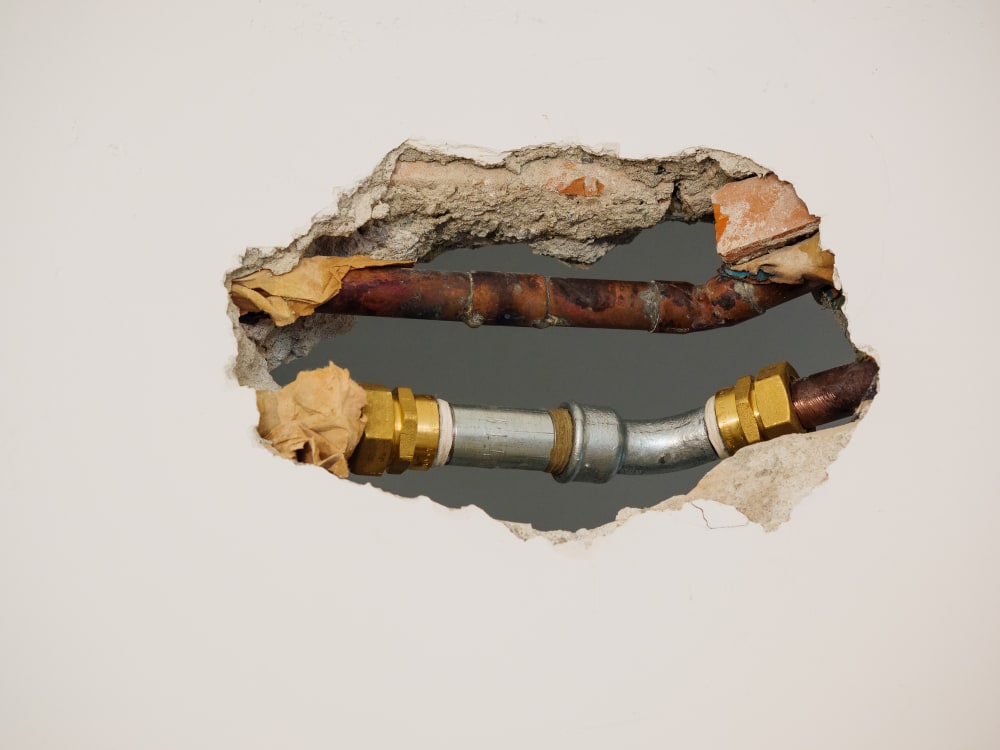
If you’ve purchased an older home, you know doubt already know that it comes with its own special set of challenges. Some of the issues you’ll encounter are minor and easy to fix, but others can cause significant damage. While many materials and features in older houses are of a higher quality than you’ll find in a modern home, some of the aspects of plumbing in these homes can be problematic.
- The pipes may be made of outdated materials. If the house was built before 1990, it may have pipes made from materials that no longer meet US building regulations.
- Lead pipes used to be popular, because lead is malleable and durable. In addition to being used for pipes, lead was also used to solder together copper pipe fittings. The use of lead has been restricted since the 1920s, however, because it’s highly toxic and especially dangerous to children. Lead wasn’t banned on a national level until 1986, so even houses built as recently as 33 years ago may have lead pipes.
- Galvanized pipes are made of iron and coated in zinc. They were common in homes built before the 1960s, but over time the zinc erodes and the pipe becomes susceptible to corrosion and breakage. The pipes themselves may last as long as 60 years, but they’re often clogged with rust a long time before they wear out completely. Most older houses have the pipes replaced piecemeal, so your house may have some galvanized pipes along with newer pipes.
- In the 1970s, polybutylene pipe was considered the “pipe of the future.” Intended as a replacement for copper lines, it was widely used in the 1980s until a class action lawsuit alleging defective pipe cost the manufacturer millions of dollars. When polybutylene pipes come into contact with oxidants in public water systems, a chemical reaction causes the pipes to flake, become brittle, and crack. If your house has any polybutylene pipes, they should be replaced proactively, before they have a chance to fail.
- Shifting of an older house may create pipe bellies. Because pipes are installed underneath homes in the ground or encased in concrete, the gradual movement of the house can cause them to shift. This causes bowing and buckling that affects the pipes’ efficiency, leading to poor drainage and clogging.
- The sewer lines in older homes may fail. Modern appliances put a strain on aging sewer lines, making them more susceptible to failure. What’s more, in an older property, tree roots may penetrate sewer lines, causing problems.
- If your home is old, it may be time to update your fixtures. The faucets, fixtures, and supply line connections in older homes may suffer from corrosion, along with general wear and tear, leading to leaks, restricted water flow, and broken knobs. Outdated fixtures and connections can also lead to high utility bills and bad smells. It’s best to replace your fixtures before they become a problem so that you’re not faced with an unpleasant surprise.
- Sometimes, older plumbing has been badly repaired. The previous owner may have been a do-it-yourself enthusiast with more enthusiasm than skill. On the other hand, it could just be that the homeowner hired incompetent plumbers. Whatever the reason, bad repairs can turn into serious emergencies if left unattended.
If your older house has plumbing issues that need the care of a professional, we can help. At Puget Sound Plumbing and Heating, we’ve been taking care of business owners and homeowners in Seattle for over 20 years, and we can meet all your heating, cooling and plumbing needs. Our team is well equipped to repair and service every part of your plumbing, including sewer lines, water heaters, leaky faucets, clogged sinks, and more. Family owned and operated, we provide superior service at affordable prices because our customers are our top priority. For help with your plumbing 24 hours a day, seven days a week, call (206) 350-0079 or contact us through our website.


